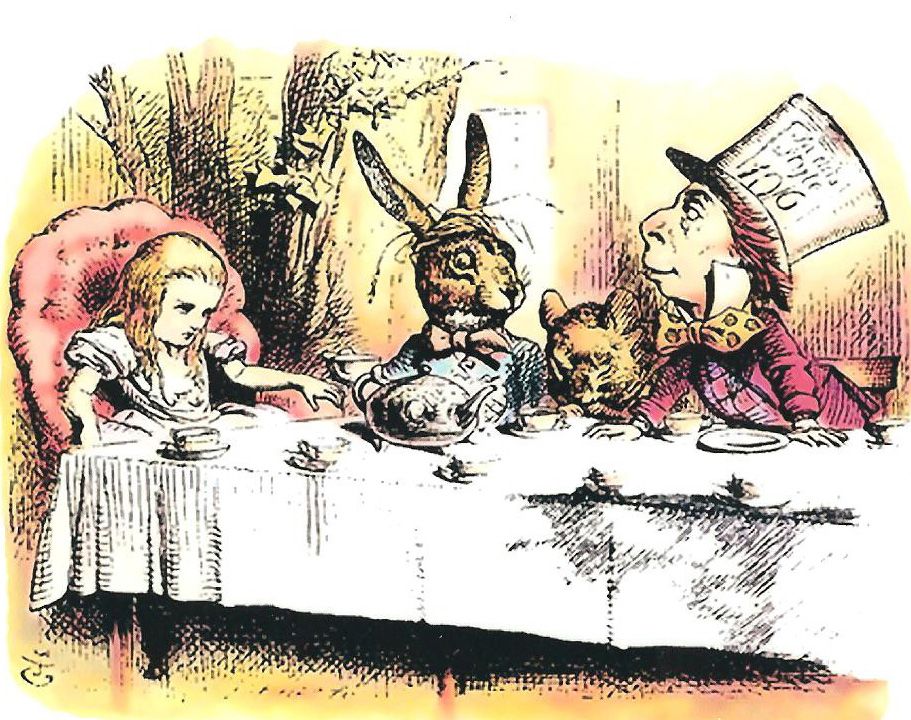Tea Party time in California?


MAY 20, 2010
By JOHN SEILER
Normally a trendsetter, California might be a laggard in following the political revolutions back east. On Tuesday, the Establishment of both parties took a beating from voters upset at the most dysfunctional government most Americans have lived under.
In Kentucky, Rand Paul wiped out Trey Grayson, the GOP Establishment candidate, by 59 percent to 35 percent. Paul is the son of Rep. Ron Paul of Texas, who lost the Republican Party’s presidential bid but easily won the campaign’s war of ideas almost by default.
Ron Paul’s predictions of a financial meltdown, memorably in the debates of 2007 and early 2008, proved prescient and have increased his popularity, as have numerous YouTube snippets of his TV appearances and speeches.
This was the first campaign in which Rand Paul, an ophthalmologist, was a candidate. Ties to his father and strong support from the anti-government Tea Party movement propelled him to victory.
In the second most important race of the day, 30-year Sen. Arlen Specter was defeated, 53 percent to 47 percent, by Rep. Joe Sestak, a retired vice admiral. Having switched from the Republican Party back to the Democratic Party he started out in, Specter was unpopular with everyone.
California surf party
How does it all play out here in California, where even now folks seem less interested in Tea Parties than surf parties?
The problem, Jack Pitney told me, is that for Republicans, “all the candidates are trying to portray themselves as outsiders, but arguably they all are insiders.” Pitney is a professor of American politics at Claremont McKenna College and author of “The Art of Political Warfare.”
Steve Poizner, running for governor, “is a veteran businessman and incumbent insurance commissioner. Meg Whitman and Carly Fiorina are part of the corporate elite,” having headed, respectively, corporate giants eBay and Hewlett-Packard. Whitman is running for governor, Fiorina for the U.S. Senate.
Tom Campbell, also running for the U.S. Senate, is a former U.S. congressman, state legislator and budget director under Gov. Schwarzenegger.
“Even Chuck DeVore, who comes closest to a an anti-establishment candidate, is an incumbent legislator and corporate executive,” having worked at SM&A, an aerospace engineering and management services firm in Newport Beach. DeVore is running for the U.S. Senate.
“It’s difficult to pin down” how the national Tea Party revolution will roll across California, Sherry Bebitch Jeffe told me; she’s senior fellow at the School of Policy, Planning and Development at the University of Southern California and the political analyst for KNBC, Los Angeles.
“But you’re going to see far more extensive branding of opponents as insiders, both in the governor’s and senate races. The candidates are using more and more Tea Party rhetoric – saying that they are the outsider. Already the Republican candidates are using Tea Party rhetoric, regardless of who the incumbent is. Whitman is trying to nail Poizner and Brown as insider Sacramento politicians.” Jerry Brown, about whom more below, is the expected Democratic nominee for governor.
Jeffe pointed to a recent TV ad by Fiorina exploiting Tea Party anti-government rhetoric. The ad asks, “Had enough?” and attacks incumbent Democratic Sen. Barbara Boxer for being in government offices for 28 years. It ends, “Let’s take Washington back. Make it listen. Make it work.”
Compare that to Rand Paul’s Tuesday victory speech from Kentucky, “I have a message, a message from the Tea Party, a message that is loud and clear and does not mince words: We’ve come to take our government back.”
Despite the common rhetoric, Jeffe said the only candidate endorsed by the Tea Partiers is DeVore. She expects DeVore, who has trailed Campbell and Fiorina in the polls, to move up as the June 8 election date approaches. She pointed to a new PPIC poll showing DeVore doubling his poll number, to 16 percent, with Fiorina at 25 percent and Campbell at 23 percent.
“He has got a lot of ground to cover,” she said of DeVore. “His poll numbers will increase. The question is: Which candidate will lose those votes? I don’t know the answer to that.”
The Jerry Factor
Sitting Sen. Barbara Boxer will be a fairly easy Establishment target for whichever Republican stands against her.
More enigmatic and elusive, as usual, will be Jerry Brown, who should easily get the Democratic nomination for governor. Jeffe recalled that Brown used Tea Party rhetoric back in the 1970s in has campaigns for governor in 1974 and 1978, and his presidential bid in 1976. “He was Tea Party before it was cool to be Tea Party,” she said.
Brown wanted to shrink government, she said, “but never did it. Never could do it. But he drove in around in a Plymouth,” instead of a state limousine, and refused to live in the governor’s mansion. His political organization and his 1990s radio show both were called “We the people.”
After Brown opposed Proposition 13, the June 1978 tax limitation initiative overwhelmingly passed by voters, he performed one of the more memorable political jiu-jitsu flips, backing it and implementing it whole-heartedly during his successful November 1978 election bid.
“It wasn’t perceived as a battlefield conversion,” Jeffe said of the Brown flip-flop. “It didn’t hurt him in the general election.”
Pitney said that Brown, despite his rhetoric, is the ultimate California insider. Pitney pointed to a study showing how a member of the Brown family has been on the midterm state ballot – for governor, U.S. senator, attorney general, secretary of state or treasurer – in all but three elections since 1946. So, of 20 elections, a Brown has been on 17 ballots.
Pitney said that, in debates with Brown this fall, to get an edge Poizner or Whitman – whichever is nominated – should always address Brown as “governor.”
Statewide status quo
Pitney pointed out that there’s one area where the Tea Parties will have little influence: the gerrymandered state legislative races. “In most of those races, the incumbent would have to commit a major felony with a minor animal to be in remote danger of losing,” he quipped.
After this election, the Citizens Redistricting Commission, instituted by voters who passed Proposition 11 in 2008, will come into play. Using the results of the 2010 U.S. Census, it will attempt to draw more fair districts for the state Legislature and the U.S. Congress. “Perhaps the commission will make a difference,” Pitney speculated. “Until then, there won’t be much of a difference” in legislative races.
Jeffe added that even the November election is a long way away. “We don’t know whether the Tea Party will be a force in the fall – or who will be the candidates. In Kentucky, the Tea Party had a significant impact.”
But California is different, she said. “The Tea Party here is not as powerful as in the other states. This is just too big a state. Even with the Internet” it’s difficult to bring together disparate people in a movement.
As usual, California just has to be different.
John Seiler, an editorial writer with The Orange County Register for 19 years, is a reporter and analyst for CalWatchDog.com. His email: [email protected].
Related Articles
Prince of a governor?
Prince Frederic von Anhalt, 65, wants to be Governor of California. He believes in legalizing marijuana, Cuban cigars and prostitution and
Elmer Fudd Translates Jerry’s Speech
John Seiler: To help us better understand, here’s Elmer Fudd translating Gov. Jerry Brown’s State of the State speech for
Election boosts privatization drives
June 8, 2012 By Joseph Perkins Voters in San Jose and San Diego sent a loud, clear message to public


